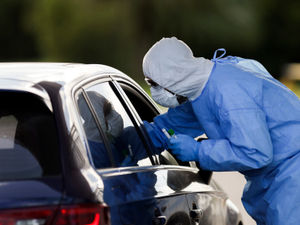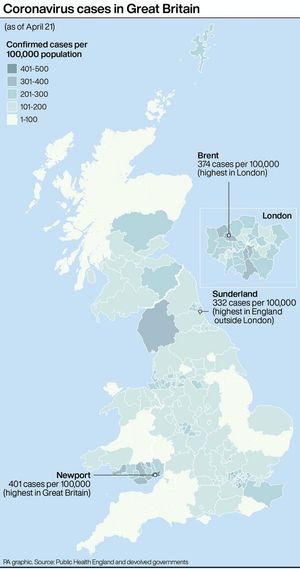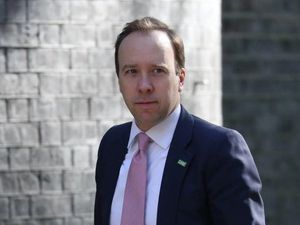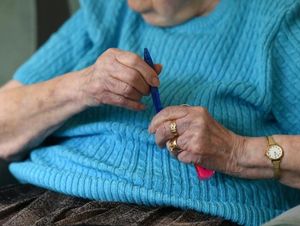56 more coronavirus deaths across Black Country, Birmingham and Staffordshire as UK toll passes 18,000
A further 56 coronavirus patients have been confirmed to have died across the Black Country, Birmingham and Staffordshire – taking the total number of deaths in the region to 1,608.

Across the UK a further 759 deaths have been confirmed, taking the country-wide death toll to 18,100.
Today's announcement confirmed 19 more deaths at the Dudley Group NHS Trust, bringing the total to 191, and 10 more deaths at Walsall Healthcare NHS Trust, a rise to 140.
A further five deaths were reported at Sandwell and West Birmingham NHS Trust, which runs Sandwell and City Hospitals, bringing the total to 257.
More Covid-19 coverage:
There were also five deaths at University Hospitals of North Midlands Trust, which runs Stafford's County Hospital and Royal Stoke Hospital, making a new total of 144.
There was one death at The Royal Wolverhampton NHS Trust, increasing the total to 213.
And 15 deaths were reported at University Hospitals Birmingham, taking the total to 642, with one further death at Birmingham Community Healthcare, an increase to 18.
In Worcestershire, one more death was confirmed, meaning 166 people have now died with coronavirus in the county's hospitals.
In England, 665 more people were confirmed to have died in hospital after testing positive for Covid-19.

The total number of deaths in hospitals across the country is now at 16,272.
The patients included in today's figures were aged between 26 and 102 and 26 of them, aged between 48 and 95, had no known underlying health conditions.
The daily announcements only include hospital deaths, meaning the full death toll is likely to be far higher, and refer to patients whose deaths were confirmed in the previous 24 hours - not who died in that period.
Some deaths are not included in the statistics for several days due to testing or family members being informed.

Mr Hancock said he was confident the country was at the peak but stressed that continued social distancing was needed to bring the number of new cases down.
He told MPs, many of whom joined the Commons session remotely: “We are ramping up our testing capacity and our capacity for contact tracing in a matter of weeks.”
Meanwhile, the Government has said Covid-19 deaths in English care homes could be double the number already reported.
The Department of Health also feared a “significant rise” in deaths not related to Covid-19 among residents, it said on Wednesday.

There were 975 coronavirus deaths in care homes in England by April 10, according to the Office for National Statistics (ONS).
Asked whether it was possible that people in Britain could be immune for a few weeks or a month before being able to get or spread the virus again, Professor David Heymann said “that is the question that everyone is trying to answer right now”.
Prof Heymann, who led the global shutdown of Sars in the early 2000s, told a press briefing for the Chatham House think tank: “The answer is that it is not known. It is not known how long antibody protection lasts. It is not known if all of the people can be detected under current testing.
“This is a new virus, so that question cannot be answered.”




